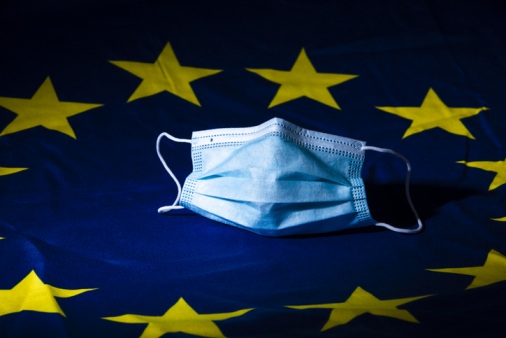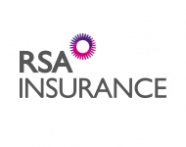The impact of Brexit on post-COVID SMEs

Authored by RSA
For SMEs, the double impact of Brexit and Coronavirus has meant the last year has been nothing short of a roller coaster ride. Small businesses are now facing complex new regulations, guidelines and customs processes. We have summarised some of the most significant Brexit impacts that the post-COVID SME market is facing.
Brexit
Small businesses with already limited cash reserves are now facing complex new customs processes, VAT requirements and regulations, maybe for the first time.
The UK left the EU, customs union and VAT area on 31 December, and from 1 January 2021, the provisions of the UK-EU Trade and Co-operation Agreement (TCA) now apply to all trade between the UK and the EU. For the 5.97 million small and medium-sized enterprises operating in the UK, the challenges of adapting to Brexit remain profound. This is likely to be the case over the coming years, as additional new legislation and co-operative technologies are introduced from both sides of the channel.
In this article, we discuss some of the most significant Brexit impacts for the post-COVID SME market.
Import and export
Perhaps the most obvious impact, and the one that hit the headlines first, is the added complications for the movement of goods in and out of the UK.
It is estimated that before Brexit, only 135,000 UK companies only ever supplied to the EU, so they have no experience of customs declarations, licences, VAT on import, rules of origin etc. These regulations have dramatically affected some supply chains, making what may previously have been simple now quite complicated.
Now, all exporters must identify products with harmonised coding (HS Code). Using the wrong HS code can affect duty rates, approvals, licenses and processing – so SMEs need to take care in finding the correct definition.
Every shipment leaving the UK for the EU is now subject to customs declarations. Many small businesses are employing intermediaries to help them with the increased documentation. However, they can register with the National Export System (NES) to electronically submit declarations themselves. Depending on the product, exporters may require additional certificates, such as Export Health certificates or Phytosanitary certificates. Check the requirements for all products here.
Under the terms of the UK-EU TCA, trade in all goods is tariff-free, providing they are classed as 'made in the UK'. Businesses need to check the laws that apply for HS coded products to determine whether they can claim zero duty or if WTO rates will apply.
Providing services to the EU
Independent professionals or contractors will have to familiarise themselves with the UK-EU Trade and Co-operation Agreement (TCA).
Whilst the UK and EU have made commitments on market access for the provision of services, there are new restrictions. It's best to check the rules of each of the member states before doing anything. The Government has helpful guidance on providing services for countries in the EU.
If an independent professional is physically providing service in the EU, they may still need to tell HMRC that they are working in the EU for tax and NI purposes.
There have been changes to recognising professional qualifications in industries like engineering, insurance or legal services.
VAT
This is one of the most complicated areas SMEs need to get to grips with post Brexit. VAT is now due at the time of importation in the customer's country. Previous simplifications, such as triangulation, are no longer available to UK businesses.
If a business provides cross-border digital services to consumers, they should check the country's rules where the customers are based, as they might have to register for VAT there. It’s vital they take care when agreeing on incoterms – the wrong agreements can have implications for VAT and cause unforeseen costs. Visit the International Chamber of Commerce website for more information.
Employing EU Nationals
There are currently around 2.25m EU nationals working in the UK. The Home Office has launched the new frontier worker permit scheme. This means frontier workers working in the UK on or before 31 December 2020 can now apply for a frontier worker permit.
Existing EU nationals already working in the UK are unlikely to be affected. Still, it’s best to check that all existing workers in a UK business obtain their ‘right to remain’ or permanent residency documentation to play it safe. The way businesses hire from the EU is also changing to a points-based immigration scheme.
Data
If a business receives personal data from an organisation in the EEA, it must follow EU data protection laws. For most businesses, this will mean using Standard Contractual Clauses (SCC) - a set of terms and conditions to help protect personal data when it leaves the EEA and is no longer protected by GDPR.
The ICO dedicated hub can help small businesses ensure they stay data compliant when sending or receiving data from EEA countries.
Impact on brokers
Since the end of the transition period, there hasn't been a deal agreed that covers financial services. The UK government is legislating that the 16 million insurance policies held by UK households and businesses with EU insurers will remain unaffected.
The most significant change is for brokers, who must now be EEA registered in order to place insurance for EEA domiciled risks in an EEA member state. This means that EEA domiciled policyholders with EEA exposures must be dealt with by an EEA regulated broker (which can include the UK regulated branch of an EEA regulated broker).
The impact to end customers shouldn’t really be visible and is more of an insurer and broker matter. However, some SMEs may find they are receiving two master policies for their global risks, one for their UK and worldwide (excluding EU) and one for their EU domiciled risks.
RSA is monitoring developments and speaking with regulators to minimise any issues that may arise. To find out more, please contact your usual RSA representative.
About RSA
With a 300-year heritage, RSA is one of the world’s leading multinational insurance groups.
Today, RSA employ around 23,000 people, serving 17 million customers in around 140 countries. While RSA's origins lie in London, RSA is a global company with businesses in both mature and emerging markets. RSA have major operations in the UK, Ireland, Scandinavia, Central and Eastern Europe, Canada, Asia, the Middle East and Latin America. youTalk-insurance sharing insurance news and video.

